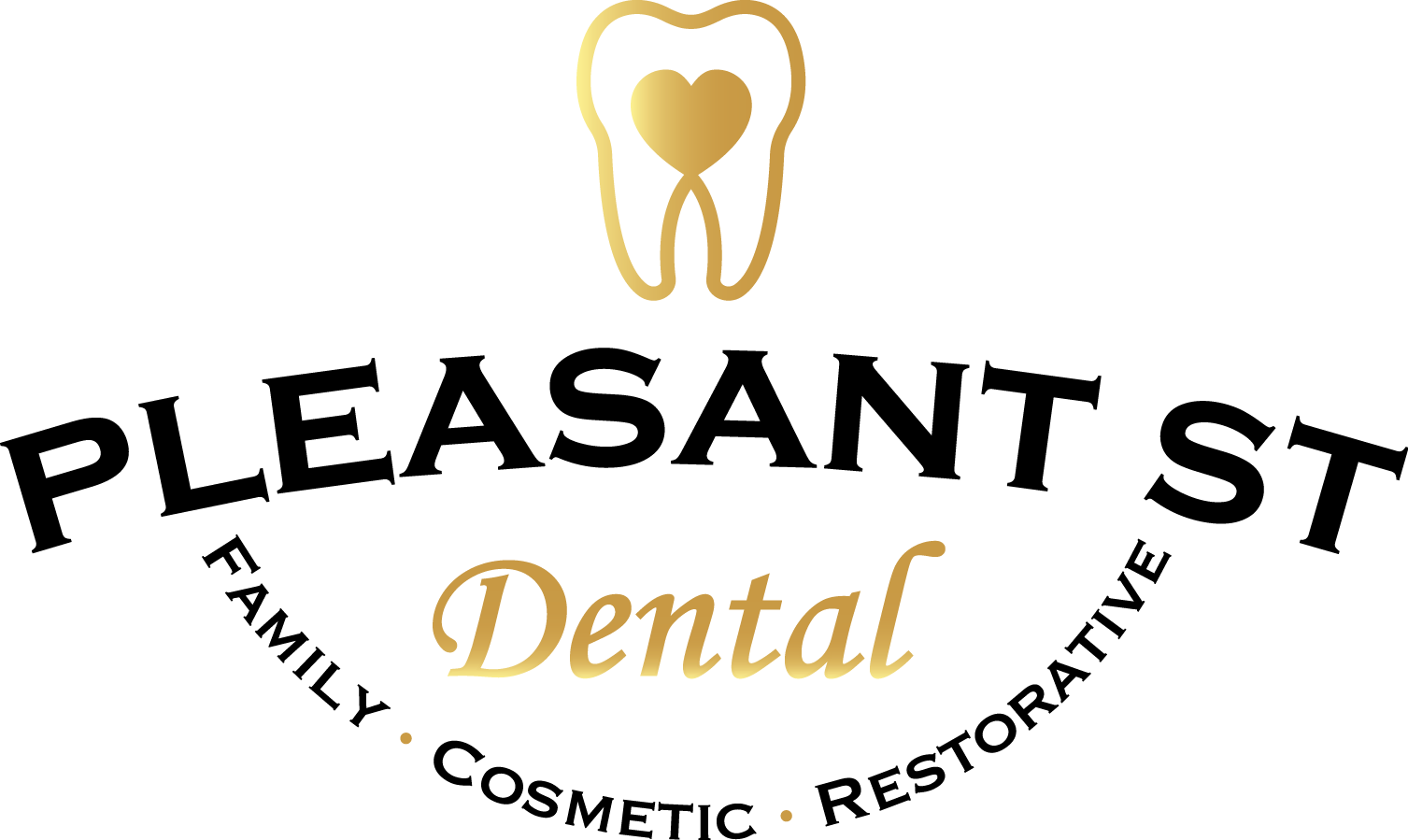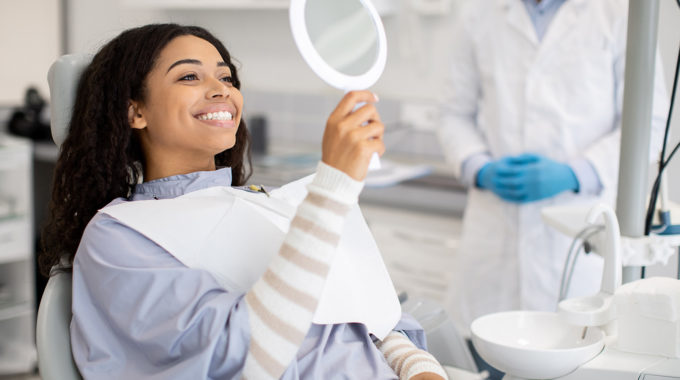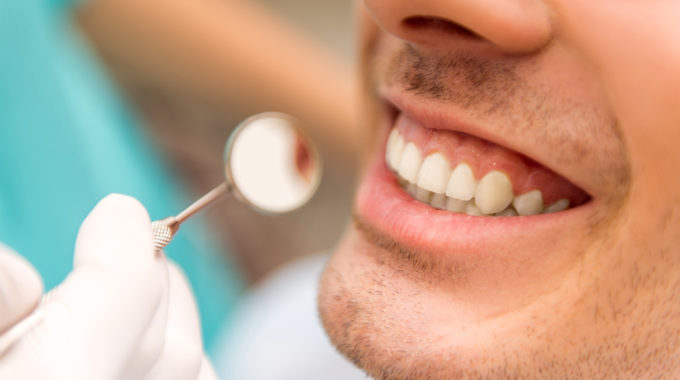We know that December can be a hectic month for many individuals - between finding…

Am I Grinding My Teeth?
Have you ever woken up with a sore jaw or a nagging headache and wondered about the cause? The culprit might be something you haven’t even considered: the unconscious habit of grinding your teeth. Medically known as bruxism, this condition involves clenching or grinding your teeth, often without your conscious awareness. It can occur during your waking hours or while you are sound asleep. Astonishingly, many individuals who grind their teeth remain completely oblivious to this habit, particularly when it happens during sleep. Recognizing the common signs and symptoms is the crucial first step in determining if you might be affected. This article will delve into these indicators, empowering you to understand if teeth grinding could be a factor in your discomfort, without providing a medical diagnosis.
Am I Clenching or Grinding My Teeth?
If you’re wondering, “Am I grinding my teeth?” Bruxism, as dental and medical professionals refer to it, describes the act of forcefully squeezing or rubbing your teeth together.
Clenching vs. Grinding
It’s important to distinguish between two key actions:
- Clenching: This involves tightly holding your teeth together, often with significant tension in your jaw muscles.
- Grinding: This refers to the back-and-forth movement of your jaw, causing your teeth to rub against each other.
When Does It Happen?
Bruxism can manifest at two primary times:
- Sleep Bruxism: Grinding or clenching your teeth at night. It’s often an unconscious activity, and you may be completely unaware of it. Sometimes, a bed partner might be the first to notice due to the sounds produced by the grinding.
- Awake Bruxism: This happens during the day while you are conscious. It can be linked to feelings of stress or intense concentration. It might be an automatic habit, or you might be aware of doing it, especially during moments of tension.
Solution Bruxism
You can protect your smile while you sleep with a custom night guard! Designed specifically for your bite, our professionally crafted night guards help prevent nighttime teeth grinding (bruxism), reducing jaw pain, headaches, and wear on your enamel. Unlike bulky over-the-counter options, our custom-fit guards offer superior comfort and durability—so you can rest easy knowing your teeth are protected. Schedule a consultation today and wake up feeling refreshed!
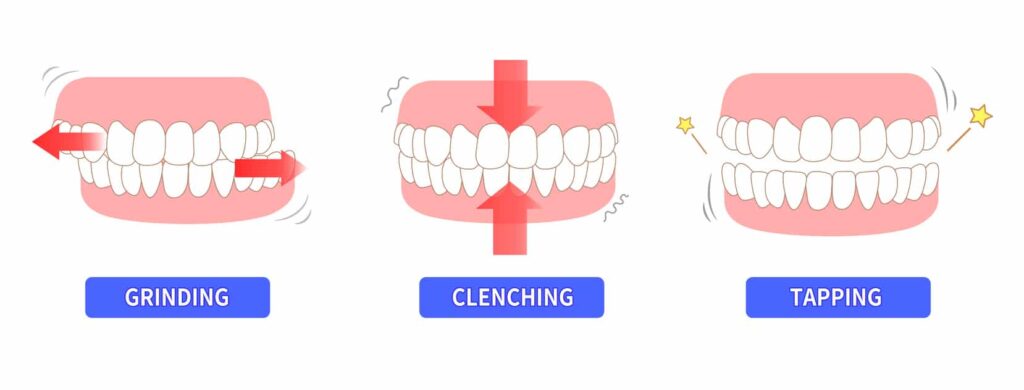
Common Signs of Teeth Grinding
Several telltale signs might suggest you are grinding your teeth. These indicators can affect your teeth directly, cause pain or discomfort in various areas, or manifest in other subtle ways.
Dental Signals to Look For
One of the most direct indicators of teeth grinding involves changes in the appearance and integrity of your teeth. If you are a grinder, you might observe that your teeth:
- Appear Flattened, Chipped, or Cracked: The constant pressure and friction wear down the enamel, the protective outer layer of your teeth.
- Feel Loose: The excessive force can impact the stability of your teeth.
- Exhibit Increased Sensitivity: As enamel erodes, the inner layers of your teeth become exposed, leading to heightened sensitivity to hot and cold temperatures.
- Show Damage to Dental Work: Fillings, crowns, or other dental restorations might become damaged or broken due to the grinding forces.
Dentists are also trained to spot specific patterns of wear that are characteristic of bruxism:
- Wear Facets: The flat, smooth areas on the parts of your teeth you use for chewing.
- Abfraction: These are V-shaped notches that can appear near the gum line.
- Craze Lines: There are tiny cracks affecting only the outer layer of the teeth, the enamel.
Grinding Teeth: Pain and Discomfort
Pain and discomfort are also frequently reported by individuals who grind their teeth:
- Morning Jaw Pain, Tenderness, or Stiffness: This is a common complaint as the jaw muscles have been working intensely during the night.
- Headaches: Often described as dull and originating at the temples.
- Facial Pain: This can sometimes mimic an earache, even when there is no actual ear infection.
- Temporomandibular Joint (TMJ) Issues: Teeth grinding can put stress on the TMJ, the joint that connects your jaw to your skull – which may result in pain while opening or closing your mouth, clicking or popping noises in the joint, or even a locked jaw.
- Neck and Shoulder Pain: Tension built up from clenching and grinding the jaw can extend to the neck and shoulders, leading to discomfort.
- Pain While Chewing: The overworked jaw muscles can become sore and sensitive.
Other Grinding Indicators
Beyond dental problems and pain, other less obvious signs might point towards teeth grinding:
- Scalloped Tongue: The edges of your tongue might have ridges or indentations from pressing against your teeth.
- Tongue Indentations: You might notice imprints of your teeth on the sides of your tongue.
- Linea Alba: A white line might appear on the inside of your cheek due to habitual cheek biting, often caused by uneven tooth surfaces grinding together.
- Tired or Tight Jaw Muscles: Very common in people suffering from teeth grinding. In some cases, these muscles might even become enlarged.
- Disrupted Sleep: If you grind your teeth while sleeping, it could make it harder to get a good night’s rest.
The wide array of these symptoms, affecting everything from your teeth to your head and neck, underscores the far-reaching impact of bruxism. The jaw muscles are intricately connected to many other muscles in these areas, meaning tension in one part can easily translate to pain in others.
Why Am I Grinding My Teeth?
The precise reasons behind teeth grinding aren’t always clear-cut, but several contributing factors have been identified:
- Stress and Anxiety: These are significant triggers for both daytime and nighttime grinding.
- Sleep Disorders: Conditions like snoring and sleep apnea have been linked to nighttime bruxism.
- Malocclusion (Misaligned Teeth) or Abnormal Bite: An improper alignment of your teeth can contribute to grinding.
- Certain Medications: Some antidepressants, particularly selective serotonin reuptake inhibitors (SSRIs), have been associated with teeth grinding.
- Substance Use: Consumption of caffeine, alcohol, and tobacco can increase the risk.
- Underlying Medical Conditions: In some instances, teeth grinding can be related to conditions such as Parkinson’s disease, dementia, gastroesophageal reflux disorder (GERD), epilepsy, and attention-deficit/hyperactivity disorder (ADHD). (source)
- In Children: Teething pain, stress, and occasionally certain medical conditions can be factors.
It appears that teeth grinding often arises from a complex interplay of physical health, mental well-being, and lifestyle factors.
What Can Happen if I Keep Grinding My Teeth?
Although grinding your teeth sometimes may not cause major issues, doing it often or intensely can result in a series of problems:
Short-Term Effects
- Recurring headaches
- Jaw pain
- Increased tooth sensitivity
- Earaches and facial pain
- Inflamed or receding gums
- Stiff and sore muscles in the face, neck, and shoulders
- Disrupted sleep and daytime fatigue
Long-Term Effects
- Extreme wear and tear of tooth enamel, potentially affecting the entire tooth
- Broken or cracked teeth
- Differences in your bite: the way your upper and lower teeth come together.
- Alteration in facial appearance in severe, long-term cases due to significant tooth wear
- Development or worsening of TMJ disorders
- In rare instances, tooth loss
Recognizing these potential consequences emphasizes the importance of being aware of the signs of bruxism and seeking professional advice if you suspect you might be affected.
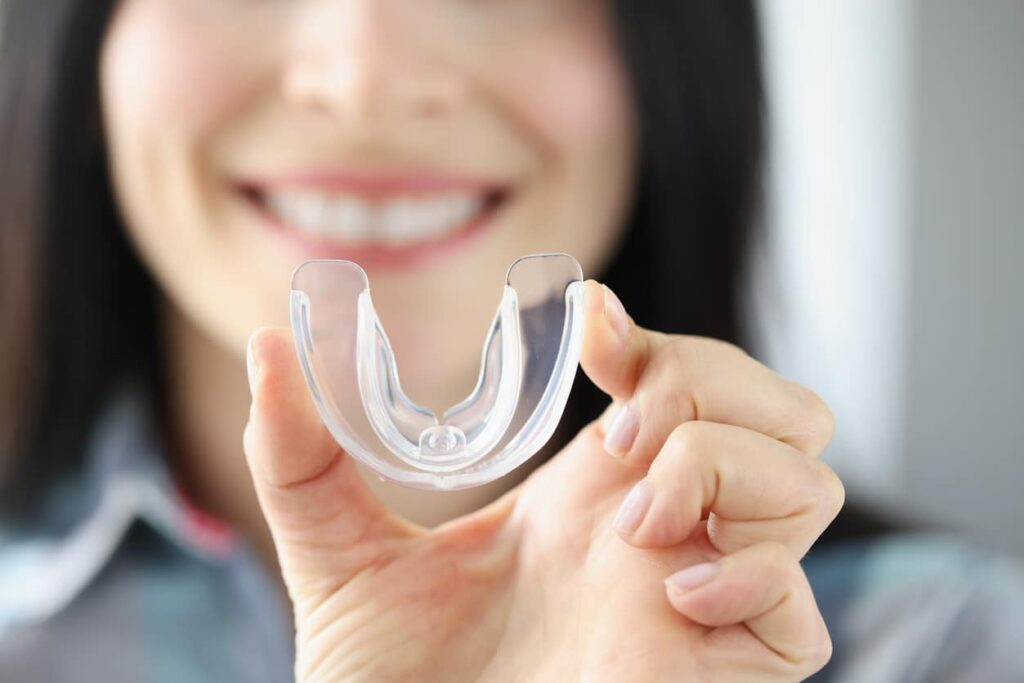
Is Grinding My Teeth Normal?
If you’re wondering if you might be one of the many people who grind their teeth, it’s reassuring to know that this condition is quite common in both adults and children. It is particularly prevalent in young children, and fortunately, many outgrow it as they mature. Studies suggest that approximately 8% to 10% of the adult population may experience teeth grinding.
Here’s a general overview of the prevalence of sleep bruxism and awake bruxism across different age groups:
| Age Group | Prevalence (Sleep Bruxism – approximate range) | Prevalence (Awake Bruxism – approximate range) |
| Infants & Toddlers | Up to 50% | Data varies |
| Children (7-10) | 14% – 35% | 12% – 22% |
| Adolescents | Around 15% | Data varies |
| Adults (18-29) | Around 13% | 22% – 31% |
| Adults (25-44) | Highest prevalence in adults | Higher prevalence in adults |
| Adults (45-74) | Lower prevalence than younger adults | Lower prevalence than younger adults |
| Adults (60+) | Around 3% | Less common |
It’s important to keep in mind that these figures can vary depending on the specific research methodologies and the populations studied. However, the overall trend indicates that teeth grinding is a relatively common occurrence.
When to See a Dentist
While this article can provide valuable insights into the potential signs and symptoms of teeth grinding, it is not a substitute for professional medical advice. The only definitive way to determine if you are grinding your teeth is to consult with a dental professional.
As part of your regular dental exams, your dentist will check for signs of teeth grinding.They will carefully examine your teeth for any unusual wear, chips, or cracks. They will also assess the tenderness of your jaw muscles and inquire about any symptoms you have been experiencing, such as jaw pain, headaches, or tooth sensitivity.
In certain situations, particularly if sleep bruxism is suspected, your dentist or doctor might recommend a sleep study. This can help monitor your sleep patterns and identify any teeth grinding activity that occurs during the night.
How to Stop Grinding My Teeth
If you’ve experienced any of the indicators we’ve talked about, such as morning pain in your jaw, persistent headaches, teeth that appear flattened, or if your sleep partner has noticed you grinding your teeth at night, please consider scheduling a visit to your dentist. While this information can empower you with greater awareness about the possibility of teeth grinding, a dental professional is best equipped to provide an accurate diagnosis and discuss any potential concerns you may have. Taking proactive steps to address potential bruxism can help safeguard your dental health and overall well-being.
